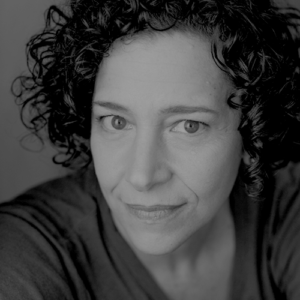
It benefits every actor/improviser to have a basic understanding of different acting techniques that you’re likely to encounter and hear about in working with other actors. I believe no method is the ‘right’ one; you can pick and choose from all of them to determine what works for you. At the end of this post, I’ll list some of the commonly recommended books from which you can develop a foundational understanding of different techniques.
The most obvious book that I’d be remiss NOT to recommend would be the one written by Annoyance Theatre founder and Artistic Director Mick Napier, “Improvise. Scene From the Inside Out”. My recommendation is not only because the author is my partner, or because it’s the foundation of the Annoyance’s approach to improvisation. It also has some excellent guidance about working with directors, auditioning, how to engage in a rehearsal process in a way that allows you to hold on to your power and voice as an actor/improviser, and how to develop your voice and point of view. It also has some great exercises you can do on your own in your own living room. Many actors believe that improvisation has nothing to offer them but I can guarantee that any actor who knows the basics of improv is a better actor.
However, they all provide excellent insights about the process of creating a character in a play or film, a fascinating look at how an actor that is engaged in this process uses their observation of life every day to inform their choices, and a strong insight into the elements of professionalism.
First, Antony Sher’s “Year of the King” is Sher’s journal during the time that he created his character for Richard III; a performance that was lauded as one of the most remarkable, unique, and fascinating portrayals of that character. It is incredibly accessible; you see Sher go through the ups and downs of inspiration, self-doubt, exhaustion, boredom and creative renewal all while slowly seeing the arc of his character come to life. If you are able to afford the anniversary version that I’ve linked to, the beauty of his sketches are well worth the extra bucks. It’s a book I think of often, and am so happy to have landed upon early in my career. (I wish I could remember who recommended it to me…)
Second is Stewart Stern’s “No Tricks In My Pocket: Paul Newman Directs”. This book was written by a dear friend and colleague of Newman’s who was allowed to be present during the rehearsal process of the film version of “The Glass Menagerie”, starring the renowned and wonderful actor Joanne Woodward (also Newman’s wife.) It is another wonderful look into a rehearsal process, working with a director, taking risks, and being confident about choices even when one is uncertain about whether they’ll work so that one can learn from having committed to the choice. After you finish reading the book, watch the movie! *NOTE- if you haven’t read the play “The Glass Menagerie” by Tennessee Williams, definitely read that first!*
My last book may be the most surprising in that it really wasn’t written for actors at all. “Stage Management” by Lawrence Stern is considered by many professionals to be the authoritative guide on how to be an effective, excellent stage manager. What it also provides is an incredible education on the process of creating in theatre from the technical point of view. Why should an actor concern themselves with that? Because it will make you a better actor to work with if you understand technical terms, know how to look at things like blocking notation or a light plot, and have a clear understanding of the protocol of how things should work in a professional theatre setting. Stern’s work ethic, respect, and love for the theatre is infectious. I’m always glad to work with actors who know not only their lines, but also the ins and outs of the work happening around them, from the lights and sound to what happens in the booth.
“Audition” by Michael Shurtleff (also often referred to as The Guideposts)
“Sanford Meisner on Acting” by Sanford Meisner
“Respect for Acting” by Uta Hagen
“True and False” by David Mamet (full disclosure: I hated this book but I’m glad I read it.)
“An Actor Prepares” by Constantin Stanislavski
“The Art of Acting” by Stella Adler
(there are SO many more … this is a pretty good start for the ‘big’ ones.)
TLDR: Read the books I’ve linked to above.
Show Creation on Cruise Ships: Another Opening, Another Show


Jennifer Estlin has been involved in the entertainment business as an actress and producer since 1986. Following her graduation from Northwestern University’s School of Speech in 1987, she traveled to Edinburgh Scotland with the production of André Gregory's Alice! directed by David Schwimmer. Afterward, she spent three months traveling all over Europe until deciding to settle for a while in Paris, where she earned her living singing on the Parisian Metro for close to a year. Upon returning to Chicago, Jennifer spent several years working in many of Chicago’s theatres including The Annoyance, Northlight, and The Body Politic. She toured for two years with Second City’s National Touring company and was a company member on a Second City resident stage in Chicago and later in Las Vegas. Jennifer moved to New York in 1994 where she worked in Off-Broadway theatre, regional theatre around the country, as well as film, and television. She returned to Chicago in 2002 to become President, Executive Producer and owner of the Annoyance Theatre, and continues to work on film, television and stage. Jennifer has appeared as recurring characters Judge Cohen on Proven Innocent and Cathy Briscoe on NBC’s Law and Order, and also in shows such as Chicago PD, Empire, Late Night with Conan O’Brien, Exit 57, and in several national and regional commercials. Her film credits include Volcano, The Eyes, and the award winning short films A Million Miles Away,(Sundance) and The Cure (Slamdance).
Read Full Profile© 2021 TheatreArtLife. All rights reserved.

Thank you so much for reading, but you have now reached your free article limit for this month.
Our contributors are currently writing more articles for you to enjoy.
To keep reading, all you have to do is become a subscriber and then you can read unlimited articles anytime.
Your investment will help us continue to ignite connections across the globe in live entertainment and build this community for industry professionals.